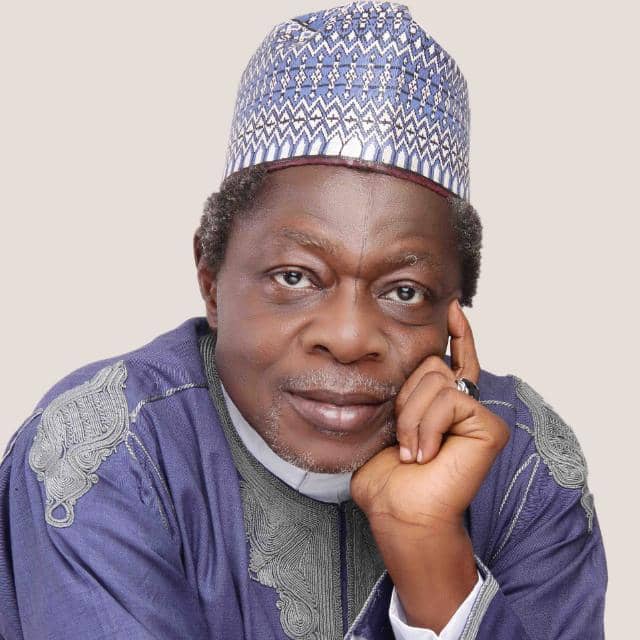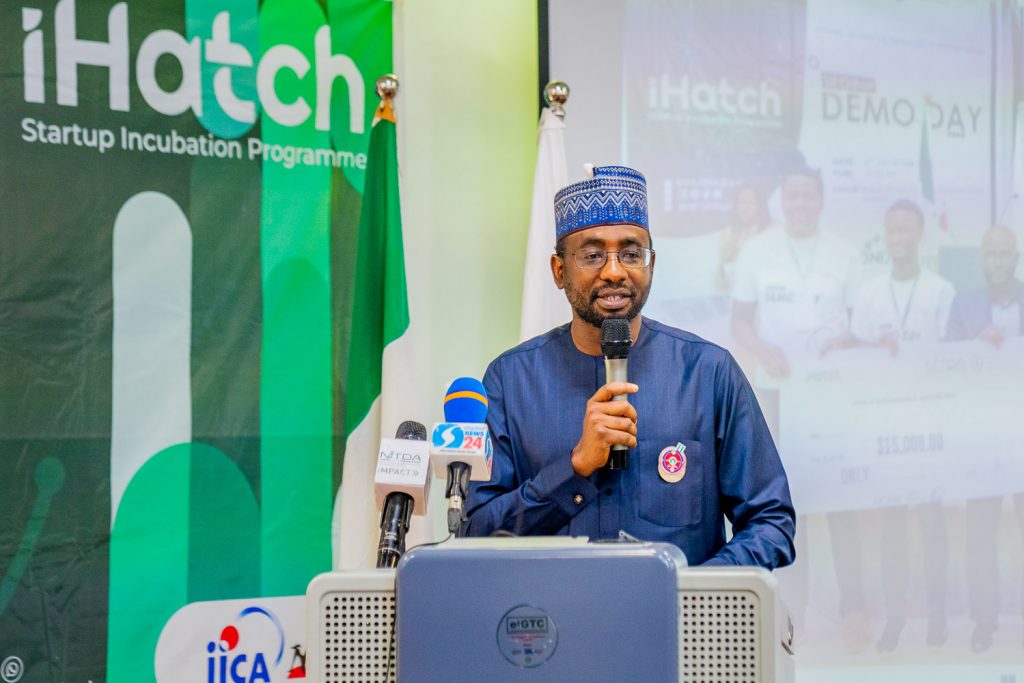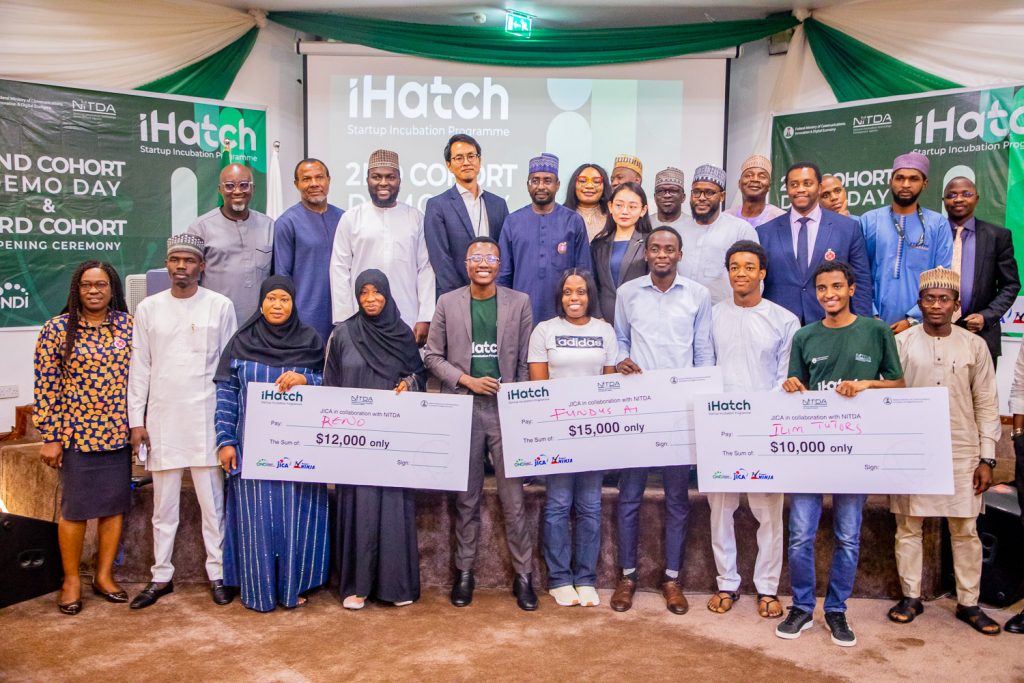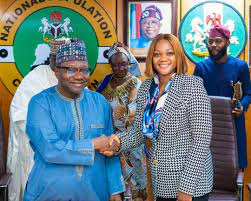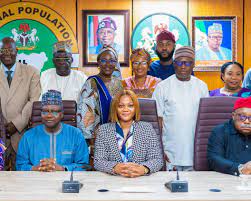Opinion
Now, Nowhere is Safe (2), by Hassan Gimba
Published
2 years agoon
I believe Nigerians should no longer accept to be fooled by those who use their sentiments to get into office. We must not forget yesterday if we want to correct our today for our tomorrow to be great.
On 26 March 2018, when we warned on this page under the screaming headline, ‘Mr President, Nigeria is at War!’, some powerful figures had since told us they had given money to (or empowered the) enemies of Nigeria “to stop banditry”!
But it is on record that we said: “Nigeria is in a state of war but it looks as if we are taking things lightly…We have been at war for quite a long time but it became even more apparent with the return of the Dapchi girls.
There was a real ceasefire when the girls were returned, the type we see in areas that are in a state of war, like Syria, Columbia with the FARC rebels, and in parts of Congo and Uganda, where the Lord’s Resistance Army operates.
“But the president was quoted ordering his service chiefs not to allow the abductions of schoolgirls again.
A citizen, in the first place, would expect the president to tell his service chiefs not to allow the abduction of any citizen, not only schoolgirls (forget that many schoolgirls from various schools have since been abducted – some ‘married’ off by their abductors). All citizens are citizens and want to feel equal before the law or before the eyes of their president.
“Farmers and voiceless Nigerians are being abducted by those who have declared war on Nigeria, but we have allowed them to play the music while we dance to the tunes.
“And it is this sort of thinking by governments that makes the militants strong. The ordinary citizen sees them as strong and comes to see that their government cannot protect them.
It makes the citizen lose confidence in the country. Little wonder some abducted Nigerians have switched allegiance or hail the terrorists (as happened in Dapchi) as ‘saviours’ because the people of Dapchi and elsewhere saw the power that should lie with their government being exercised by enemies of the state.” Yet they did not heed, and now nowhere is safe.
Nigerians should note that on 7 December 2020, under the topic ‘Mr President, Let’s Call In The Chadians!’, we said: “Pride, lies, sentiments, emotions, burying our head in the sand like the proverbial ostrich will not take us anywhere. If we continue this way, we may end up with nowhere to hide. Boko Haram remains a menace, bandits and kidnappers now prowl our streets, and armed robbers rob at will. Already, travelling by road is at significant risk.
“We should come down from our high horse if we do not want our sovereignty taken away by brigands. We should contract Chad to come in and help while we form a wall to stop them (Boko Haram) from escaping into the country. Or else we call in the mercenaries.”
Those who should have supported this view didn’t, but now since they want cheap votes, they are cashing in on our fears and calling for foreign mercenaries to fight the monsters they strengthened, after giving them the financial muscle to become this powerful.
They kept paying money to the bandits – their confessions – even sending messages to them in Niger Republic and Mali. When they became strong, they teamed up with Boko Haram and started this spate of kidnappings, and now, nowhere is safe.
When the Kankara boys were kidnapped, I wrote, in December 2020, under ‘Kankara And The Postponed Dawn’: “I have always insisted that Boko Haram and the North-West pillagers are the same but wearing different togas…we need to take back our once beautiful, safe and hospitable country, for the sake of our children.”
What were those just “realising”, after giving them lots of money, that the bandits are Boko Haram doing? Let us pray our mumu don do and we will tell them that now we know them.
But move on, we must. Proffering solutions should be our concern. Previous writings, however, show that all along, we have been offering solutions for free. We may want to read my write-ups: Boko Haram’s Resurgence and Jonathan’s Magic Wand 1 and 2.
In January this year, writing with the title ‘Banditry and our Quest for Leadership’, we said: “One solution is for the government to organise a people’s militia that will flush out all those marauders. That strategy proved successful in both Iraq and Syria. Here in Nigeria, some communities have stood eyeball to eyeball with bandits and insurgents and, as a result, found themselves some peace. Biu, in Borno State and Azare, in Bauchi State, readily comes to mind.
“It can encourage each local government to muster at least 5,000 of its youth to be trained to confront the bandits. The Nigerian government should transform the war against the bandits into a people’s war for self-defence.
“We must take the battle to every inch of space occupied by bandits. Possibly, all settlements in the bush should be cleared and moved to the main roads.” We said this before populist politicians started talking about bombing bushes now that they will start seeking votes.
Still writing under ‘Kankara and The Postponed Dawn’, we presented a quote from Confucius as another viable solution: ‘Excessive wealth creates haughtiness (arrogance). Excessive poverty leads to envy. Envy leads to robbery. Haughtiness leads to lawlessness. This is the nature of the mass of the people. Therefore, the wise rulers institute humane government so that the rich be restrained and not become too greedy, and the poor will then have enough sustenance and not worry about their daily food. In this way, there is a balance between the poor and the rich. Therefore, it is easy to govern and maintain order.”
Again, writing under the title, ‘Mandela and the parable of the Fulani’, we said: “But there is also something wrong with the North. It lacks a leader, lacks focus, and lacks vision. Most of the Fulani terrorising Nigeria now could have long been engineers, medical doctors, professors, etc. The regime of General Ibrahim Badamasi Babangida started what it christened nomadic education. Under it, there were many things involved that could change the way the Fulani lived. But because most of our leaders are short-sighted and prioritise lining their pockets, they never took that programme seriously. Now, with all the money they have sliced for themselves, those who should have been professionals today will not allow them to enjoy it.” And, therefore, nowhere is safe.
“For God’s sake,” we went on, “what will it take to create ranches to settle the Fulani herders and provide every facility that would add value to their lives and livelihood? Why should someone move cattle from Mali to Osogbo or Obudu and, worse of all, leave cries of woes behind him? Apart from being fair to them as human beings, the cattle will have more quality when bred in one place than subjecting them to the stress of trekking hundreds of kilometres and feeding on just anything. And there is the assurance of minimising crime.
“Such persons cannot realise that being proactive is the only way to help the Fulani. Through proper management of cattle colonies, a cow can bring three to four times its value than when transported live to the South. A well-managed ranch can produce and process hide and skin, milk, butter, gum, fertilizer, animal feed, etc., and this will give them greater bargaining power and more money.
“Again, the North is just reactive. The typical northerner not only continues his life the way he has been living it but casts an eye on others as if he is their guardian angel. When they say Fulani must pack out, he comes out bristling with fury and gives southerners an ultimatum to leave his land as well.
When they form Amotekun, he becomes agitated, red-eyed and prances about akin to a cow in heat and forms a paper tiger Shege Ka Fasa. If some riff-raff from the South says ‘we will ban eating of cow meat’, the northern rabble-rouser, like someone on a short fuse, shrieks that ‘we will not take cows to the South’. And he uses all these gimmicks to line his pockets because, after a few days, you hear nothing from him again until the next move from the South. But the plight of the Fulani, North or Nigeria does not concern him.
“But beyond all these, the federal government needs to up its game. Many of our problems are because of poor government policies. A lot of Nigerians feel either neglected or short-changed by their government.
There is a belief in many quarters that they have been neglected, while a certain breed of citizens is being favoured. Such perceptions by people have to be changed. And it is only the government that can do that through deliberate policies meant to restore the people’s confidence in it.”
Writing in ‘Are We Now Blaming the Victim?’, on 14 December 2020, we said: “By the way, can’t the federal government enact a law to the effect that for any criminal arrested with an unregistered SIM card or for any crime perpetrated in which an unregistered SIM card was used for communication, the network provider should be sanctioned? Such ideas might be undemocratic. However, Joseph Goebbels once said: ‘It will always be one of the best jokes of democracy that it gives its deadly enemies the means to destroy it.’”
We also pointed to another way when on 12 February 2020, while on the topic, ‘Of ex-corps member Amuta, Coronavirus and Auno Carnage’, we wrote about the unexpected news of Abraham Amuta, a former youth corps member in the clutches of Boko Haram who renounced his Nigerian citizenship for that of the group that was holding him.
“Abducted by Boko Haram insurgents in April 2019, Amuta reportedly rejected an offer to be freed by the terrorists, telling negotiators who went to the Sambisa Forest to secure his release to go back home, saying he had renounced his Christian faith and is now a member of Boko Haram.
“However, we need to look deeper to understand the situation, and perhaps our nation would see the need to rise and have every citizen’s back. And knowing Nigerians, whatever made Citizen Amuta stay back will not be an issue for long because, soon, he will be forgotten and we shall all move on. We are a forgetful lot. Nothing occupies our thoughts for long.
“The way the innocent child sees its father as a superhero who will give it protection is the way the innocent citizen considers his country.
Those Chibok girls have realised the hard way that, in Nigeria, life goes on. Conversely, those under the captivity of the terrorists, being of impressionable ages, would have seen the ‘strength’ in the bandits and could have savoured the ‘adventure’. Any wonder why some refused to return? They no longer have respect for a government or society that cannot protect its own. And sadly so, the average citizen sees all this and loses hope.
“All those abducted by Boko Haram naturally expect their country to come to their rescue. This, of course, does not countenance the fact that our army has recorded exceptional feats by freeing many abducted victims. The issue is that every abducted citizen deserves to be freed by his country. The means matter little; their freedom is the ultimate.”
You may like
Opinion
IHATCH: JAPAN GOVERNMENT TASK TO LEVERAGE NIGERIA’S YOUTHFUL POPULATION- DG NITDA
Published
5 months agoon
December 3, 2023
By James Ishaku
As part of the current administration of President Bola Tinubu’s commitment towards creating meaningful opportunities for Nigerian youths, the Director General Of the National Information Technology Development Agency (NITDA), Kashifu Inuwa CCIE has called on the government of Japan to leverage on the youthful population through strategic talent partnership that will nurture and build a workforce that can be exported.
The DG made the call at the Ihatch startup incubation programme 2nd cohort demo day and 3rd cohort opening ceremony organised by the subsidiary of the agency, Office for Nigerian Digital Innovation (ONDI), in partnership with Japan International Corporation Agency (JICA) in Abuja.
Inuwa noted that the ihatch 5-month free intensive incubation programme executed by the ONDI and hosted within the National Centre for Artificial Intelligence and Robotics (NCAIR) is designed to help Nigerian tech entrepreneurs refine their business ideas through a series of coaching, lectures, and booth camps to develop scalable and adaptable business models that willfocus on youth, innovation, entrepreneurship, and technology.
He added that the incubation programme will be held simultaneously in Abuja, Lagos, Port Harcourt, Gombe, and Kano and JICA has agreed to extend the Fourth Cohort across each of the 36 States and the FCT. This is to enable wider reach and to stimulate the startup ecosystems across the States.
The DG stated that not fewer than 1,218 applications were received for the Second Cohort and the number was pruned down to 8 startups, comprising 16 persons, a Founder and Co-Founder for each startup, after undergoing levels of rigorous selection process conducted by a panel of judges, comprising experts in diverse areas of technology and innovative entrepreneurship.
He explained that the selection process assessed the startups’ ideas based on the criteria of profitability, scalability, social impact, idea technique, competitive advantage, experience, and a clearly defined future roadmap.
Inuwa further revealed that a total of 11,183 applications were received from across the 6 geopolitical zones for the Third Cohort. This culminated in the selection of the top 8 startups, comprising 16 founders in total that will participate in the Third Cohort that was launched.
He added that 16 startups that participated in the first and second cohorts of the iHatch incubation programme have moved on to achieve remarkable success in the areas of job creation, funding, participation in events, and valuable partnerships which have created a combined total of 179 direct jobs in the span of agriculture, health, education, and e-commerce sectors.
The DG further asserted that apart from the total grant of US$45,000 (US$15,000 each) for Proof of Concept (POC) to the top 3 startups in the first cohort, some of the startups have raised some funding through other sources. Xolani Health (a health tech startup from the first cohort) secured a grant worth US$155,000, BetaLife (a health tech startup from the first cohort) secured an angel investment of US$60,000, Gifty (an e-commerce startup from the second cohort) got a grant of USD$8,000 while two other startups from the first and second cohorts respectively, raised a combined total grant of US$6,000.
Inuwa affirmed the agency’s commitment to working with relevant stakeholders and partners towards the successful implementation of the Nigeria Startup Act (NSA) which will accelerate innovation and provide much-needed jobs for our teeming youths. Leaving nothing to chance in our resolve to nurture the entrepreneurial spirit in our youth to catalyze the Nigerian digital economy to the next level.
The Honourable Minister, Federal Ministry of Industry, Trade and Investment, Doris Nkiruka Uzoka-Anite, represented by National Coordinator, National Talent Export Programme, Dr Femi Adeluyi, applauded NITDA for the various initiatives and programs put in place for the advancement of the tech ecosystem in the country.
Anite noted that the NITDA DG at the Digital Nigeria International Conference 2023 edition harped on the need for Nigeria to become the talent destination of the world where countries will come to seek a workforce that will work with them towards achieving their goals and objectives.
She added that “technology is a pivotal tool in all aspects of life which cannot be overemphasized and the green transition scoreboard global total has reached about $7.13 trillion for export and about $6.6 trillion for importation, the important aspect is that 54% of these activities is digitally edible and prepares people to be effective and efficient in the different sector of the economy is laudable”.
The Minister also appreciated JICA for its relentless efforts toward the advancement of the tech ecosystem in the area of automobile, development, training, scholarships, interventions and a lot more which has impacted the citizens directly or indirectly.
The Ambassador of Japan to Nigeria, Matsunaga Kazuyoshi, represented by Yuzurio Susumu Chief of Nigeria Office in his remarks stated that Nigeria is the most popular country in Africa and the heart hub of entrepreneurship activities aimed towards the advancement of the country.
He added, “With all the challenges faced by insecurity, and limited infrastructures in the country, Nigerian startups are demonstrating remarkable creativity and resilience in developing solutions that other critical social issues in areas such as education, transportation, healthcare and finance”.
He added that the present administration has identified the transformation potential of startups and digitization making it a key factor in diversifying the Nigerian economy from its dependence on oil.
The Ambassador pointed out that startups are seen as a catalyst for business transformation, bringing fresh ideas, innovative technologies and new employment opportunities. Japan has the longest history of technological innovation and entrepreneurship has a significant role in supporting the Nigerian system.
Among those who attended were representatives from both the private and public and the top three (3) startups emerged with cash prices to Fundus AI 1st postion $15,000.00, Reno 2nd postion with $12,000.00 and Ilim Tutors 3rd postion $10,000.00 respectively.
Coker – Odusote: 100 Days at the Helm of NIMC
By Walter Duru, Ph.D
It was Albert Einstein that once said that “setting an example is not the main means of influencing another, it is the only means.” That sentiment expressed by Einstein is the primary essence behind the theory of transformational leadership, which requires passion, charisma, and the ability to motivate others. Transformational leaders are usually very authentic, emotionally intelligent, great listeners, results-focused, visionary, and self-aware.
In just 100 days at the helm of the National Identity Management Commission (NIMC), Engr. Abisoye Coker-Odusote has ushered in a new era of transformational leadership, leaving an indelible mark on the organization. Her eventual confirmation as substantive Director General/Chief Executive Officer of the Commission did not come to many as a surprise.
She did not waste time to hit the ground running and showed commitment to advancing the NIMC’s mission and mandate.
Coker-Odusote has taken steps to streamline National Identity Number (NIN) registration processes, while addressing the long-standing challenges associated with identity registration in Nigeria. This, she is handling through strategic restructuring and the integration of advanced technologies with a view to significantly reduce waiting time and enhance the overall efficiency of the system.
Today, date of birth and other kinds of modifications at NIMC happen within 48 hours. The several years backlog of date of birth modifications she inherited are almost cleared, as she had given a one-month deadline for the same to relevant staff of the Commission.
Again, responses to issues and complaints, such as those whose National Identity Numbers did not hit the NIN Verification Portal are now resolved within 24 hours.
Recognizing the paramount importance of data security in the digital age, the NIMC CEO has taken steps to enhance data security by introducing robust measures to fortify the protection of citizens’ sensitive information. This includes, but not limited to the adoption of cutting-edge encryption technologies and the establishment of a dedicated cybersecurity team.
Her interest in improving service delivery at NIMC cannot be overemphasized. She has concluded plans to ensure regular training and retraining for staff of the Commission, emphasizing customer-centric approaches, to ensure a more positive experience for citizens seeking identity services.
On partnerships, Coker-Odusote, leveraging her extensive network and expertise, has forged strategic partnerships with governmental agencies, private organizations, and international bodies. These collaborations aim to enhance the NIMC’s capacity, foster innovation, and promote information sharing for the betterment of identity management.
Understanding the pivotal role of technology in modernizing identity management, Engr. Coker-Odusote has spearheaded the integration of biometric advancements and artificial intelligence into the registration and verification processes.
This not only improves accuracy, user experience and ease of enrolment, but also positions NIMC at the forefront of technological innovation in identity management. A typical example is the NIMC Contactless Biometric Solution, which delivers a best-in-class fingerprint and facial capture image output quality, powered by Artificial Intelligence. The new solution was unveiled by the commission at the 2023 Identity Day, held in Abuja on September 16, 2023.
In addition, Engr. Coker-Odusote tackled the existing backlog of unprocessed identity requests head-on. Through a combination of strategic staff deployment and redeployment, process optimization, and digitization initiatives, she has made significant strides in clearing the backlog, demonstrating her commitment to prompt and efficient service delivery.
Recognizing the crucial role played by the NIMC staff in achieving organizational goals, the CEO has developed for implementation, a robust welfare programme aimed at boosting morale and fostering a positive work environment. This includes, but not limited to training opportunities, health benefits, and performance recognition initiatives.
Furthermore, in consultation with in-house experts, elaborate public awareness campaigns are being planned, to ensure that citizens are well-informed about the importance and benefits of identity registration. These campaigns are expected to not only educate the public, but also serve to demystify the registration process, encouraging greater participation.
The NIMC DG has concluded plans to take the ecosystem enrolment forward by taking steps to deepen collaboration with ecosystem implementing partners, supporting to ensure the success and optimal performance of the Nigeria Digital Identification for Development (ID4D) Project, a Nigerian Project jointly funded by The World Bank, The European Investment Bank, and the French Development Agency.
Engr. Coker-Odusote’s strategic vision, commitment to efficiency, and emphasis on technological innovation positions NIMC for a future where identity management is not only secure but also seamlessly integrated into the daily lives of citizens.
On anti-corruption, the NIMC DG has left no one in doubt on her determination to sanitize the system, entrench a culture of transparency and zero tolerance for corruption. Apart from putting systems and structures in place to discourage graft, she is directly involved in ensuring that the cankerworm has no place in the commission.
Just recently, in what one may describe as a sting operation, she paid an unscheduled visit to the Federal Capital Territory office of the commission, where she is reported to have arrested some staff for allegedly extorting money from Nigerians, even as she has maintained that enrolment was free.
Her devotion to supporting the policy direction of the present administration by strengthening the issuance of the NIN for access to service is not in doubt.
Speaking on Coker-Odusote’s first 100 days in office as NIMC CEO, Project Coordinator, Nigeria Digital ID4D Project, Musa Odole Solomon described her as a vibrant, results-focused leader, determined to make a difference in the Commission.
“She has taken steps to build bridges of collaboration between NIMC and partners within the country’s identity ecosystem. These collaborations aim to enhance the NIMC’s capacity, foster innovation, and promote information sharing for the betterment of identity management in Nigeria.”
“The collaboration is also focused on enhancing handshake with institutions involved in the country’s identity ecosystem, with a view to deepening integration with the country’s Identity Management System.”
“In 100 days, she has taken the lead in working with the Nigeria Digital ID4D Project to speed up project implementation process, especially, processes geared towards the extension of NIN enrolment to hard-to-reach areas, women, persons with disabilities, and marginalized groups, thereby fostering inclusion and access to social services.”
“She has introduced some innovations that I consider very progressive, and things are moving very well. The Nigeria Digital ID4D Project is happy to work with her, as she has shown that she has all it takes to assist us succeed.”
Responding to a question on his impression about the NIMC DG’s leadership style and the future of the relationship between NIMC and his organisation, Chairman, National Population Commission (NPC), Hon. Nasir Isa Kwarra stressed that the relationship between NIMC and NPC has become more robust under Coker-Odusote’s leadership as NIMC CEO.
“I want to say that the National Population Commission has a long and robust collaborative partnership with the National Identity Management Commission (NIMC) in our efforts to harmonize and integrate biometric databases for planning and development of our country.”
“However, this partnership has become more dynamic and robust with the assumption into office of Engr. Abisoye Coker-Odusote as the Director General of NIMC. She has shown an unparalleled commitment and passion in working with the Commission, not only in registration of births and deaths, but also the upcoming population census. She comes across as a thoroughbred professional and innovator who will give Africa’s greatest nation a deserved identity profile for national unity, security, and development. I am more confident in the future of the Identity Management Commission under her.”
Responding to a question on the new grounds covered at the NIMC ICT, Director, IT/Identity Database of the Commission, Chuks Onyepunuka has this to say:
“Our DG is pragmatic, proactive, result-oriented and visionist. Her achievements in ICT in NIMC in the last 100 days include, but not limited to: “launching of self-modification and enrolments services to ease and simplify the processes for enrolment services; driving the clearing of about 3 million backlog of enrolment records awaiting manual adjudication within 3 weeks; decentralization of operations with objectives of ensuring that we are closer to the enrolees and adequate coverage in the nooks and crannies of the country.”
“Others are improvement in the process of engaging and revalidating our Frontend Enrolment Partners (FEPs); improvement in our ICT policies, processes and procedures; resolution of 95% challenges/issues affecting our window enrolment software (Res-Web) and commenced the integration and harmonization with National Population Commission, Nigeria Immigration Service and Federal Inland Revenue Service (FIRS).”
Adding her voice, NIMC’s Director, Business Development and Commercial Services, Mrs. Carolyn Folami described the DG as a thoroughbred professional, committed to resetting the Commission for the good of the nation.
“It has been only 100 days, but it seems she has been here far longer, as within this period, we have achieved a couple of goals towards resetting the NIMC agenda and resettling the NIMC staff for productivity.”
“Starting with the planning and commencement of training of all staff, to the commitment to all Front-End Partners (FEP) to revalidate the business model for fair play and payment. She is very keen on stakeholder engagement and has secured the buy- in of our harmonisation partners for effectiveness. She is professional, thorough, dedicated, and above all, kind to all.
Adding his voice, Monitoring and Evaluation Specialist, Project Implementation Unit, Nigeria Digital ID4D Project, Dr. Emmanuel Akogun argued that Coker-Odusote’s first 100 days in office were characterised by “dynamic, focused and results – oriented leadership,” adding that there is steady progress in NIN enrolment, with “103,500,000 Nigerians and other legal residents captured in the NIMC Database.”
There is therefore no gainsaying the fact that Engr. Abisoye Coker-Odusote’s first 100 days as CEO of the NIMC have been marked by a series of commendable achievements.
At this point, one can confidently say that with Engr. Bisoye Coker-Odusote as Chief Executive Officer, NIMC is in safe hands.
Her recent confirmation as substantive Director General/CEO of the Commission is clearly an act of patriotism by the Nigerian President, Bola Ahmed Tinubu.
However, as she commences a full tenure of office, following her recent confirmation, one expects that the standard is not lowered.
As she marks 100 days in office this week, the most challenging part of Abisoye Coker-Odusote’s journey as Chief Executive Officer of the NIMC is the need to sustain the successes recorded, remain focused, deepen stakeholder engagement and public enlightenment, check corruption, strengthen systems and structures, be fair to all, while supporting the policy direction of the present administration.
Deliberate steps must be taken to ensure the sustenance of the war against extortion at NIMC.
Again, a deliberate plan should be in place to ensure a more robust stakeholder collaboration, particularly with those involved in the country’s identity ecosystem.
Elaborate, sustained communication and public enlightenment activities are required, taking advantage of the conventional and unconventional channels of communication to inform, educate and mobilize the citizens on the need for all to register for the NIN. This requires a deliberate strategy and strategic implementation.
Finally, a deliberate inclusion strategy must be in place and vigorously implemented to ensure that no one is left behind.
As the DG continues to lead with passion and purpose, NIMC is poised for even greater accomplishments under her guidance.
Indeed, NIMC is in safe hands!
Dr. Walter Duru (Assistant Professor of Communication and Multimedia Design) is a Communication/Public Relations Strategist, Researcher and Consultant. He could be reached on walterchike@gmail.com
Opinion
Telecoms: Operators seek strict harmonised RoW charges
Published
5 months agoon
November 25, 2023AJAGBE ADEYEMI TESLIM
SPONSORED BY: H&H
Telecom operators have urged the federal government to make a policy that will make the charges on the Right of Way (RoW) uniform across the country.
According to them, the issue of RoW has been a major challenge hindering the deployment of telecom infrastructure while the infrastructure is vandalised in some areas.
Right of Way charge is a levy paid by telecommunication companies to state governments, permitting telecommunication companies to dig up the roads and install telecommunications hardware such as optic fibre cables that carry internet traffic.
The Right of Way charge has been fraught with inconsistencies across the states in terms of charges and has negatively impacted broadband infrastructure.
To harmonize the Right of Way charges for broadband infrastructure investment, the Federal Government, in 2017, through the National Executive Council (NEC), approved a policy, which resulted in a RoW Charge Agreement reached with all the governors of the 36 states of Nigeria.
However, the RoW Charge Agreement is yet to be fully adopted by the 36 States, and in recognition of the slow uptake by the States, the former Minister of Communication and Digital Economy, Isa Pantami, on January 14 2020 in a press statement called on states to implement the harmonization of the RoW charges for obvious benefits for the sector such as deepening development/growth in broadband infrastructure, and reducing the transfer of RoW charges costs by telecommunications companies to customers.
January 2020 recorded a step in the right direction when the Nigerian Governors Forum accordingly resolved that telecommunication operators were to pay N145 (approximately $0.37) per linear metre to lay fibre cable anywhere in the country.
Meanwhile, despite these, the telecom operators have continually complained about the different charges leveled by different states for the Right of Way.
According to them, the issue of the RoW has been worrisome affecting the laying of telecom infrastructure in some states in the country.
They said this has also been the bane of telecom services in some areas, especially in the cities where people do not enjoy the services.
The operators noted that if there is harmonisation and every state in the country abides by the rule, telecom services will be everywhere across the country.
“If such policy is wrong and strict, there will be unification in the charges for the Right of Way by all the states. And even the payment will be easy. And to make the policy strong, the Federal Government must declare telecom infrastructure as national infrastructure.
Once it becomes a national infrastructure, you don’t need to talk about being paid or not being paid.
All that the telco company needs to do is to pass through the agency that is in charge. You write the agency and get your cables laid.
Except the Right of Way affects someone’s building, which is very difficult. If it affects someone’s building, that is a different thing, but if it does not, what you just need is to get approval from the agency in charge. If this is achieved, the broadband penetration we are talking about will be easily expanded,” telco operators said.
Trending
-

 News5 years ago
News5 years agoBreaking: ‘Penalty’ Crooner Small Doctor Caught in Possession of Fire Arms
-

 News5 years ago
News5 years agoTiffany Trump Is Dating a Millionaire Michael Boulos From Nigeria
-

 News5 years ago
News5 years agoPDP Set To Cause Panic Days To Polls: FG
-

 News5 years ago
News5 years agoINEC Engages EFCC, FIU In Tracking Campaign Funding
-
News2 years ago
INEC Publish Final List of Candidates For 2022 Osun Governorship Poll
-

 Politics5 years ago
Politics5 years agoPDP Alleges Plot by APC, Presidency to Detain Its Leaders
-

 Politics5 years ago
Politics5 years agoOsinbajo Has Betrayed Yorubas, Says Afenifere
-

 Politics5 years ago
Politics5 years agoLagos Commissioner Decamps To PDP





